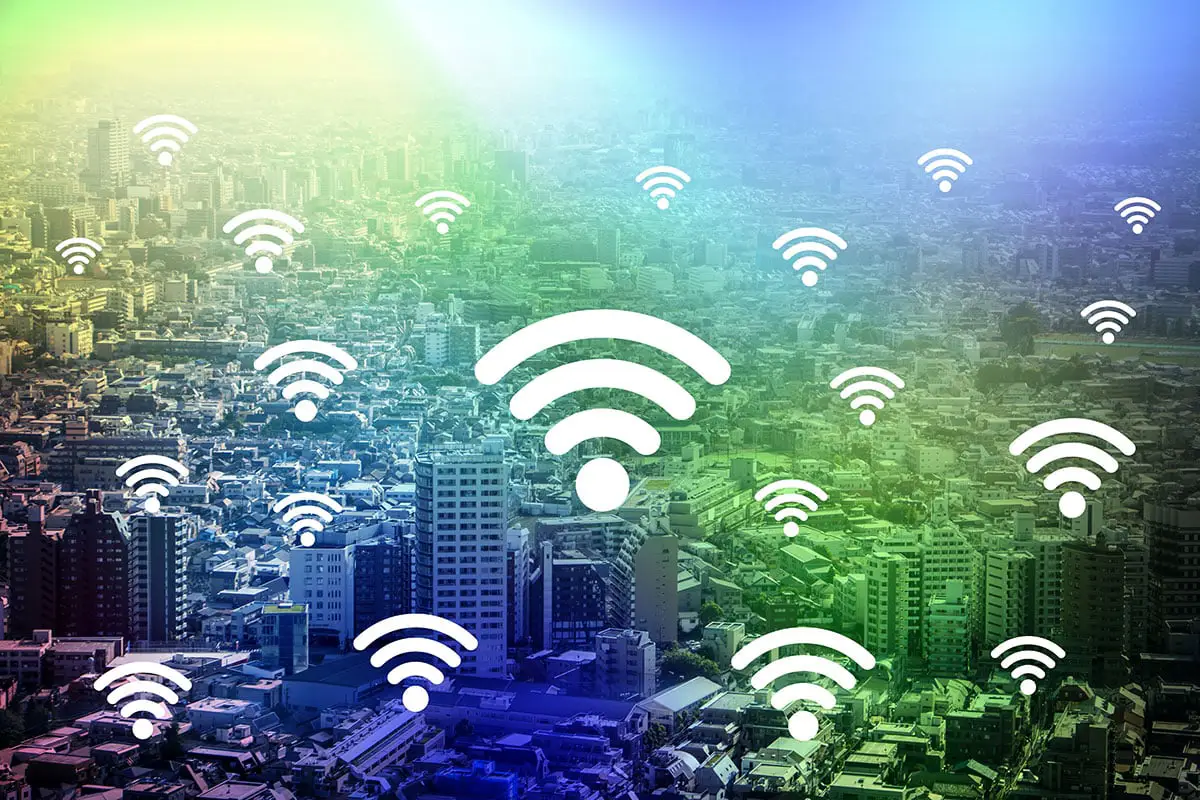
Feb 1, 2023
Blog Digital World A closer look at smart beacons
First introduced by technology giant Apple back in 2013, smart beacons are now used in numerous industries worldwide – and demand is rising to record levels. In 2019, Amazon used smart beacons to track anonymous footfall at their largest web services conference. This shed unique insight into crowd behavior, and underscores the potential smart beacons offer to marketers, business developers and governments alike.
As technologies become more advanced and businesses seek to better understand their consumers, smart beacons are being used with increasing frequency. According to BCC Research’s latest report, the global market for smart beacons is projected to expand by 35.2% to reach $39.6 billion by 2027. Given this mammoth market growth, let’s break down the essentials of smart beacons.
Smart beacons are small devices that use Bluetooth low energy (BLE) to transmit information to other Bluetooth devices. Given that they transfer information across a network of devices, smart beacons are considered a type of IoT application.
Beacons can be installed in various locations, from corporate events à la Amazon to in and around retail stores. The gadgets can detect nearby Bluetooth-enabled devices and attract the attention of a user. Mostly, smart beacons are used for marketing offers, asset tracking, contact tracing, and indoor navigation purposes.
Having only been around since 2013, smart beacons are still relatively new to the tech scene. Although they’re yet to gain status as essential pieces of equipment, they have some clear advantages to businesses and consumers that are helping them surge in popularity.
The major advantages of smart beacons are:
Some disadvantages of smart beacons:
The drawbacks of smart beacons are relatively minimal. Given their low cost and ease of use, many businesses are adopting a ‘why not?’ attitude when it comes to the devices. And it’s the retail sector in particular that’s expected to be the technology’s primary adopter.
As more and more shopping experiences rely on mobile phones, it makes sense for retailers to look to smart beacons to help make their stores smarter. They can provide real-time updates on consumer behavior, allowing businesses to send users location-specific ads and notifications. Offers, flash sales, and product details can be delivered straight to a user’s phone. The other advantage is that the checkout process can be sped up by contactless payment systems.
A smart beacon application of increasing prominence is the smart city. Governments are funneling significant funds into transforming cities into technological hubs, helping to streamline infrastructure, improve public safety, and reduce carbon emissions.
In smart cities, smart beacons are deployed in public zones to provide location-based services. These can range from city promotions to generic surveys and other marketing services. They can help enhance security and infrastructure assets by increasing interaction with the users in the beacons’ proximity zones. As a low-cost option, beacons are appealing to governments looking to improve their safety and accessibility. With various smart city projects already in action, the smart beacon market is expected to grow in synchrony.
Smart beacons will increasingly be used as tools by both governments and marketers to gain further insight into the behavior of the public. With the market set to rise exponentially, there’s never been a more apt time to learn about the industry.
BCC Research’s latest report evaluates the global outlook for smart beacons. Download your complimentary report overview or purchase the report in full here.
Alternatively, consider becoming a member of the BCC Research library. We offer our members access to a host of reports within your chosen field. Within the information technology category, for example, we publish a huge volume of reports which can help elevate your business performance. Please get in touch below to find out more about membership – we’d be delighted to hear from you.

Olivia Lowden is a Junior Copywriter at BCC Research, writing content on everything from sustainability to fintech. Before beginning at BCC Research, she received a First-Class Master’s Degree in Creative Writing from the University of East Anglia.

From smartphones to satellites, antennas play a vital role in enabling the seaml...

Introduction Artificial Intelligence (AI) and the Internet of Things (IoT) are r...

We are your trusted research partner, providing actionable insights and custom consulting across life sciences, advanced materials, and technology. Allow BCC Research to nurture your smartest business decisions today, tomorrow, and beyond.
Contact UsBCC Research provides objective, unbiased measurement and assessment of market opportunities with detailed market research reports. Our experienced industry analysts assess growth opportunities, market sizing, technologies, applications, supply chains and companies with the singular goal of helping you make informed business decisions, free of noise and hype.